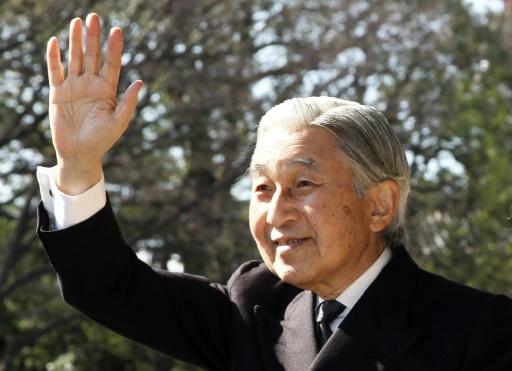-
Tips for becoming a good boxer - November 6, 2020
-
7 expert tips for making your hens night a memorable one - November 6, 2020
-
5 reasons to host your Christmas party on a cruise boat - November 6, 2020
-
What to do when you’re charged with a crime - November 6, 2020
-
Should you get one or multiple dogs? Here’s all you need to know - November 3, 2020
-
A Guide: How to Build Your Very Own Magic Mirror - February 14, 2019
-
Our Top Inspirational Baseball Stars - November 24, 2018
-
Five Tech Tools That Will Help You Turn Your Blog into a Business - November 24, 2018
-
How to Indulge on Vacation without Expanding Your Waist - November 9, 2018
-
5 Strategies for Businesses to Appeal to Today’s Increasingly Mobile-Crazed Customers - November 9, 2018
Japan’s emperor hints at abdication soon
In the rare video message, Akihito said old age and illness may make it hard for him to fulfill his public duties.
Advertisement
The revered 82-year-old emperor’s comments came in his second-ever televised address to the public. The first was after a massive quake, deadly tsunami and nuclear crisis hit northeast Japan in March 2011.
Akihito, 82, has been in poor health in recent years and has cut back on a busy schedule that includes public appearances and goodwill missions across Japan and the Asia-Pacific region. There’s now no legal process for an emperor to step down in Japan, and a law would have to be amended for him to do so.
Following Akihito’s speech, conservative Prime Minister Shinzo Abe said that, in view of the emperor’s age and the burden of his official duties, it was necessary to consider what steps could be taken.
“When the Emperor has ill health and his condition becomes serious, I am concerned that, as we have seen in the past, society comes to a standstill and people’s lives are impacted in various ways”. No provision for abdication was included in the constitutional and legal changes following Japan’s surrender at the end of World War II.
Abdication is not mentioned under the existing laws in Japan, so the parliament will need to approve a change in the law before the Emperor can give up the throne.
Referring to demise of an emperor, he said, “The practice in the Imperial Family has been that the death of the Emperor called for events of heavy mourning, continuing every day for two months, followed by funeral events which continue for one year”.
Kingston noted that the speech was also interesting because Akihito spoke “as a citizen baring his soul and sharing his anguish about not being able to fulfill his duties as symbol of state”.
In this photo taken Sunday, Aug. 7, 2016 and provided by the Imperial Household Agency of Japan on Monday, Aug. 8, 2016, Japan’s Emperor Akihito reads a message for recording at the Imperial Palace in Tokyo.
Emperor Akihito made the remarks in a rare video message delivered to the public on national television.
Even expressing his desire to abdicate the throne would be seen as interfering too strongly in the Japanese political process, given that it would require amending the nation’s laws. Women can not take the throne and must leave the imperial family when they marry. While speaking only elliptically on the topic, as the Japanese Constitution forbids him from meddling in politics, it’s clear Emperor Akihito is hoping he will be the next.
FILE – In this August 15, 1945, file photo, Japanese people lower their head toward the Imperial Palace in Tokyo, as then Japan’s Emperor Hirohito announces on radio that Japan was defeated in the World War II.
The emperor has served in his role since his father, Hirohito, died in 1989. Together he and Empress Michiko have three children.
Advertisement
Although the emperor has few powers, he holds a special place in Japanese people’s hearts.





























